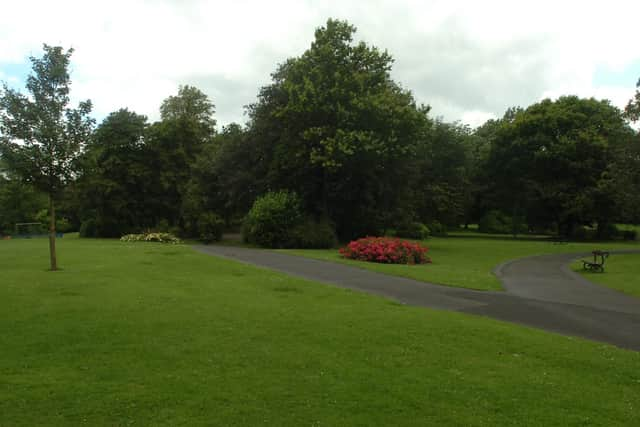Burnley Council could phase out use of potentially dangerous weedkillers in play areas and parks
and live on Freeview channel 276
A report to go before next week’s Executive Committee meeting proposes the council should investigate phasing out the use of pesticides and herbicides on land that it owns or manages by undertaking trials of alternative techniques and reviewing progress made by other authorities.
A trial would be carried out to cease the use of glyphosate in children’s play areas and in Thompson and Ightenhill parks from April 2020 to the end of September 2020 using alternative methods of mechanical and steam treatment to manage weeds.
Advertisement
Hide AdAdvertisement
Hide AdAnd a secondary trial would be undertaken for the use of the organic herbicide pelargonic acid for control of weeds around graves in Burnley Cemetery from April 2020 to the end of September 2020.


The Burnley Express revealed on Monday that Burnley Council was looking at introducing more environmentally friendly practices.
Results from the trials would be reported back to the council in November and a decision would then be taken about the future use of glyphosate-based products.
Council bosses say glyphosate is certified and approved for the control of weeds in public places and is the safest and most cost-effective method available.
Advertisement
Hide AdAdvertisement
Hide AdBut growing popular and political pressure to eliminate the use of glyphosate could lead to the chemical being de-listed at some point in the future leading the council to investigate ways in which glyphosate and other pesticides could be eliminated.
In July last year, Green Party Coun. Andy Fewings proposed a motion suggesting the council should phase out the use of all pesticides, herbicides and weedkillers on council owned or maintained land.
Coun. Fewings claimed there was compelling evidence that glyphosate and a wide range of other herbicides and pesticides may be harmful to human health.
He added that recent studies showed a 41% increased risk of Non-Hodgkin Lymphoma caused by exposure from glyphosate-based weed killers and products.
However, EU bosses conducted a thorough risk assessment in 2017 and found insufficient evidence to directly link glyphosates as a cause of cancer.